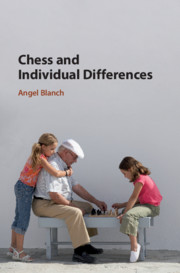Book contents
- Frontmatter
- Contents
- List of Figures
- List of Tables
- Preface
- Acknowledgements
- 1 Introduction
- 2 Quantifying Chess Skill
- 3 Cognition
- 4 Individual Differences
- 5 Psychophysiology and Brain Functioning
- 6 Intelligence
- 7 Personality
- 8 Expertise
- 9 Sex Differences
- 10 Applications
- 11 Concluding Remarks
- Appendix 1
- Appendix 2
- Appendix 3
- Appendix 4
- Glossary
- References
- Index
3 - Cognition
Published online by Cambridge University Press: 03 December 2020
- Frontmatter
- Contents
- List of Figures
- List of Tables
- Preface
- Acknowledgements
- 1 Introduction
- 2 Quantifying Chess Skill
- 3 Cognition
- 4 Individual Differences
- 5 Psychophysiology and Brain Functioning
- 6 Intelligence
- 7 Personality
- 8 Expertise
- 9 Sex Differences
- 10 Applications
- 11 Concluding Remarks
- Appendix 1
- Appendix 2
- Appendix 3
- Appendix 4
- Glossary
- References
- Index
Summary
Most empirical studies about chess have taken the happenstance of the cognitive or experimental paradigm within psychology. In this chapter, the past main research findings from this approach will be reviewed together with their contribution to psychological science. The chapter is structured into three main subsections, perception, memory, and thinking. Each of these sections describe more specific themes such as information processing models, eye movements, theories of memory in chess, and thinking methods such as pattern recognition and search. The main conclusions from this extensive body of research are summarized through the prism of the individual differences approach.
- Type
- Chapter
- Information
- Chess and Individual Differences , pp. 19 - 37Publisher: Cambridge University PressPrint publication year: 2020

